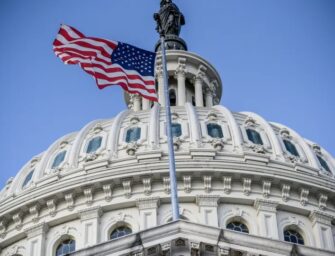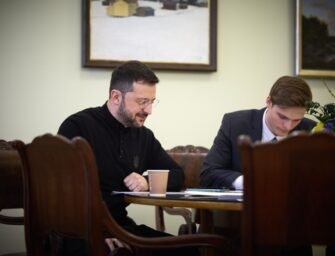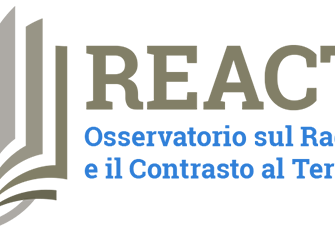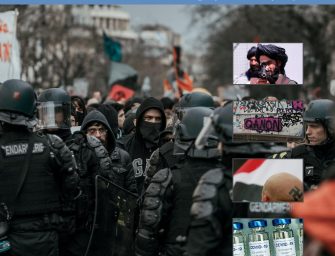Conspiracy theories: a clear and present danger to national security and global stability?
by Andrea Molle
Download the full analysis in pdf
The influence of conspiracy theories on politics presents serious threats to national security and the international relations system’s stability. The trend is of several populist movements picking up conspiratorial contents to gain political support in exchange for positions of power being occupied by supporters of conspiracy theories. Moreover, the growing presence in the public administration (civil and military) of followers of conspiracy theories poses a clear danger to governance in the West.
Conspiracy theories pose a national security threat due to the ease with which they appear to have infiltrated Western political systems, in addition to the growing links with the world of neo-Nazi movements and their potential to fuel a new season of cell-based terrorism. Right now, America is at the front line of this phenomenon, with the penetration of conspiracy theories into the political agenda almost taken for granted by analysts. A striking example is Rep. Marjorie Taylor Greene, born in 1974, recently elected with 74.7% of the state of Georgia’s preferences. A state that was once a Republican stronghold but recently handed the presidential elections and control of the Senate to Mr. Biden and the Democratic party. Known for having supported numerous far-right conspiracy theories and expressed racist, anti-Semitic, and Islamophobic views, Green is today under scrutiny for publicly endorsing a social media campaign to arrest and execute Democratic leaders accused of treason. Green, and a few other representatives supported by the alt-right, is a member of a so-called “conspiracy caucus” that has become a key player in the new reality of political competition, characterized by the normalization of extremist groups and post-factual ideologies. These politicians are involved in congressional committees and, in some cases, occupy important positions in various government agencies.
Conspiracy theories and American Politic
The “conspiracy caucus” is an informal political group with few affiliated in Congress, some accused of having facilitated the events of January 6, 2021. However, its real numbers and extension at the local level and in the country’s bureaucratic and military apparatus are still unclear. The same leaders of the Republican Party admit today that the State level impact of conspiracy theories, which in some cases incorporate elements of neo-Nazism, is now endemic. It is challenging to pinpoint a precise point in time when supporters of conspiracy theories began to infiltrate American politics and the public administration. It certainly did not evolve to the current extent in a few months. Nevertheless, the political expansion of conspiracy theories was relatively fast. There have always been people fascinated by the idea of a conspiracy in the population and some isolated political personality who has embraced some of its elements. However, the mainstream parties have always distanced themselves from this world. The only notable exception was a small political party known as the “American Party.” This movement was founded in New York in 1843, initially assuming the name of the “American Republican Party” and then spread to other states as the “Native American Party” (but only the descendants of the white British colonists were considered natives). It finally entered the national political competition in 1855, under the name of “American Party,” and dissolve only five years later, in 1860. It was a self-styled “nativist” party, which would nowadays be called a “sovranist” movement. It drew consensus from the widespread idea that America was about to capitulate to a cabal controlled by the Pope who, through massive immigration of Catholics, wanted to replace the country’s “native” population with individuals hostile to the values of white and Protestant America. The party was soon known to the public as know nothing due to its semi-secret organizational structure and the fact that when a member was to be asked about its activities, it instructed to reply only with “I do not know anything.”
Alt-right between the US and Europe
The sobering reality of a major political movement such as the Republican Party being infiltrated by followers of conspiracy theories to the point of them being able to secure leadership positions is indeed alarming. This trend, now international, forerun by the transnational Alt-right movement started by media outlets such as InfoWars, launched in 1999 by Alex Jones, started approximately in 2009, following the last Great Recession (2007/08), and with the birth of the Tea Party movement. However, it is with the presidential elections of 2016 that conspiracy theories began to assume a prominent role in American and European social and political life, reaching a point that today is perhaps one of no return. As happened in Trump’s America, some European political leaders and heads of state and government, expressions of right-wing extremist movements, have taken advantage of the electoral boost given by conspiracies’ normalization. These movements do not seem to have hesitated, nor do they hesitate today, to draw on conspiracy themes by leveraging the population’s irrationality and fears. The high marginal utility of conspiracy is rapidly bringing the political positions of the sovranist right closer to those of extremist neo-nazi movements, paving the way for them to acquire more powerful positions within the continental party systems. Potentially, this could lead some RWE leaders to hold institutional positions, both nationally and in the European Union, in a way not dissimilar to what happened in just over twenty years in the US. Marjorie Taylor Greene and the many unknown bureaucrats now have significant power to influence critical political and military decisions and international relations’ stability. With them in power, the risk of witnessing an increase in policy-making based on non-factual premises is exceptionally high today. Suppose more extreme individuals would increasingly occupy position of power. In that case, there is a clear and imminent danger of collusion with hostile powers that are interested in destabilizing Western governments, which can result in more and more actions of political sabotage or even false flag operations.
Conclusions
Unfortunately, the extent of the infiltration or the amount of damage done so far is unknown. Nevertheless, it is necessary to act promptly and intervene in the most effective ways to prevent further consequences. It is recommended to start investigating the presence of supporters of conspiracy theories at all levels of the public administration and promoting regulatory reforms to protect the independence of politics from these groups and individuals.
Download the full analysis in pdf











































There are no comments
Add yours